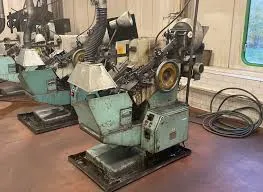
-
 Afrikaans
Afrikaans -
 Albanian
Albanian -
 Amharic
Amharic -
 Arabic
Arabic -
 Armenian
Armenian -
 Azerbaijani
Azerbaijani -
 Basque
Basque -
 Belarusian
Belarusian -
 Bengali
Bengali -
 Bosnian
Bosnian -
 Bulgarian
Bulgarian -
 Catalan
Catalan -
 Cebuano
Cebuano -
 Corsican
Corsican -
 Croatian
Croatian -
 Czech
Czech -
 Danish
Danish -
 Dutch
Dutch -
 English
English -
 Esperanto
Esperanto -
 Estonian
Estonian -
 Finnish
Finnish -
 French
French -
 Frisian
Frisian -
 Galician
Galician -
 Georgian
Georgian -
 German
German -
 Greek
Greek -
 Gujarati
Gujarati -
 Haitian Creole
Haitian Creole -
 hausa
hausa -
 hawaiian
hawaiian -
 Hebrew
Hebrew -
 Hindi
Hindi -
 Miao
Miao -
 Hungarian
Hungarian -
 Icelandic
Icelandic -
 igbo
igbo -
 Indonesian
Indonesian -
 irish
irish -
 Italian
Italian -
 Japanese
Japanese -
 Javanese
Javanese -
 Kannada
Kannada -
 kazakh
kazakh -
 Khmer
Khmer -
 Rwandese
Rwandese -
 Korean
Korean -
 Kurdish
Kurdish -
 Kyrgyz
Kyrgyz -
 Lao
Lao -
 Latin
Latin -
 Latvian
Latvian -
 Lithuanian
Lithuanian -
 Luxembourgish
Luxembourgish -
 Macedonian
Macedonian -
 Malgashi
Malgashi -
 Malay
Malay -
 Malayalam
Malayalam -
 Maltese
Maltese -
 Maori
Maori -
 Marathi
Marathi -
 Mongolian
Mongolian -
 Myanmar
Myanmar -
 Nepali
Nepali -
 Norwegian
Norwegian -
 Norwegian
Norwegian -
 Occitan
Occitan -
 Pashto
Pashto -
 Persian
Persian -
 Polish
Polish -
 Portuguese
Portuguese -
 Punjabi
Punjabi -
 Romanian
Romanian -
 Russian
Russian -
 Samoan
Samoan -
 Scottish Gaelic
Scottish Gaelic -
 Serbian
Serbian -
 Sesotho
Sesotho -
 Shona
Shona -
 Sindhi
Sindhi -
 Sinhala
Sinhala -
 Slovak
Slovak -
 Slovenian
Slovenian -
 Somali
Somali -
 Spanish
Spanish -
 Sundanese
Sundanese -
 Swahili
Swahili -
 Swedish
Swedish -
 Tagalog
Tagalog -
 Tajik
Tajik -
 Tamil
Tamil -
 Tatar
Tatar -
 Telugu
Telugu -
 Thai
Thai -
 Turkish
Turkish -
 Turkmen
Turkmen -
 Ukrainian
Ukrainian -
 Urdu
Urdu -
 Uighur
Uighur -
 Uzbek
Uzbek -
 Vietnamese
Vietnamese -
 Welsh
Welsh -
 Bantu
Bantu -
 Yiddish
Yiddish -
 Yoruba
Yoruba -
 Zulu
Zulu
Feb . 19, 2025 10:37
Back to list
Automatic nut and bolt threading rod thread rolling machine
In the world of advanced manufacturing and high-precision engineering, thread rolling machines are indispensable assets. These machines streamline the process of forming screw threads on a multitude of components, providing both efficiency and precision. Anyone in the industry considering the purchase of such equipment often faces the critical task of assessing price listings. Here’s an insightful exploration into this realm, tailored for individuals eager to make informed, optimized, and strategic decisions.
The authority of the manufacturer plays a critical role in the decision-making process as well. Industry leaders with a longstanding reputation for quality and reliability, such as National Machinery or Profiroll Technologies, often guarantee not only cutting-edge technology but also comprehensive after-sales support. This support can be vital for ongoing maintenance or in resolving any operational hiccups, ensuring the longevity of your investment. Building trustworthiness in your purchase decision also involves thorough research on customer feedback and third-party reviews. Evaluating experiences from other industry professionals can provide valuable insights into the performance and reliability of specific models and brands. Additionally, many suppliers offer demonstrations or sample tests which can be a prudent means of assessing machine performance first-hand before committing to a purchase. Finally, considering the financial aspects beyond the initial purchase price is important for a holistic view. Operating costs, maintenance expenses, and energy efficiency should all be factored into the long-term cost-benefit analysis. In some cases, looking for pre-owned options or leasing arrangements might provide a more financially feasible entry point, especially for smaller operations looking to expand their capabilities without overextending their budget. In conclusion, investing in a thread rolling machine involves much more than just reviewing a price list. It demands a strategic evaluation of your specific industrial needs, a detailed assessment of technological capabilities, and the reliability of manufacturers and models. By considering all these factors, professionals in the field can ensure that their investment in thread rolling machinery will yield not just immediate productivity improvements, but also sustainable positive outcomes across their production processes.


The authority of the manufacturer plays a critical role in the decision-making process as well. Industry leaders with a longstanding reputation for quality and reliability, such as National Machinery or Profiroll Technologies, often guarantee not only cutting-edge technology but also comprehensive after-sales support. This support can be vital for ongoing maintenance or in resolving any operational hiccups, ensuring the longevity of your investment. Building trustworthiness in your purchase decision also involves thorough research on customer feedback and third-party reviews. Evaluating experiences from other industry professionals can provide valuable insights into the performance and reliability of specific models and brands. Additionally, many suppliers offer demonstrations or sample tests which can be a prudent means of assessing machine performance first-hand before committing to a purchase. Finally, considering the financial aspects beyond the initial purchase price is important for a holistic view. Operating costs, maintenance expenses, and energy efficiency should all be factored into the long-term cost-benefit analysis. In some cases, looking for pre-owned options or leasing arrangements might provide a more financially feasible entry point, especially for smaller operations looking to expand their capabilities without overextending their budget. In conclusion, investing in a thread rolling machine involves much more than just reviewing a price list. It demands a strategic evaluation of your specific industrial needs, a detailed assessment of technological capabilities, and the reliability of manufacturers and models. By considering all these factors, professionals in the field can ensure that their investment in thread rolling machinery will yield not just immediate productivity improvements, but also sustainable positive outcomes across their production processes.
Share:
Latest news
Upgrade Your Production Line With Advanced Threading Solutions
NewsJun.12,2025
Optimize Precision With Advanced Thread Rolling Equipment
NewsJun.12,2025
Maximize Production With A High-Speed Thread Rolling Machine
NewsJun.12,2025
Master Precision Engineering With The Right Roller Threading Machine
NewsJun.12,2025
Find The Right Thread Rolling Tool For Precision Threading
NewsJun.12,2025
Boost Efficiency With Our Thread Rolling Machine
NewsJun.12,2025
